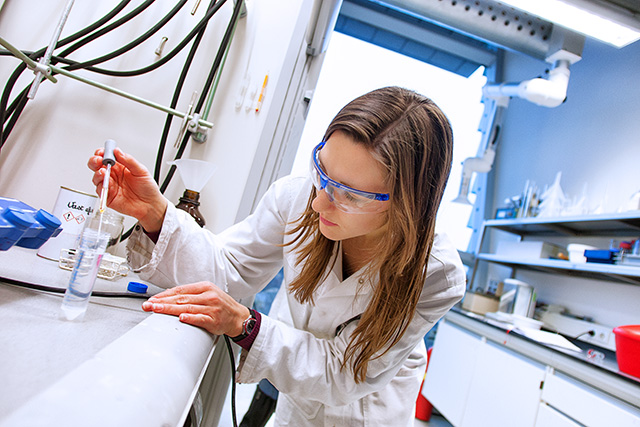What’s hot in Chemistry?
In September, six new English bachelor tracks will receive their first first-years. In this series, Vox wants to know what the hot research topics in these bachelors’ scientific fields are. This time: Chemistry.

‘In 2019 or 2020, our faculty wants to switch to English completely, while the whole campus is becoming more international,’ says Dennis Löwik, Assistant Professor Bio-organic Chemistry. ‘Besides, demographically, the number of students in Dutch high schools is decreasing. To keep the number of students at the same level in the future, we need international students.’ Starting next September, the chemistry bachelor track will be taught completely in English. ‘Starting an English track next to the Dutch one was never an option, since we simply do not have enough students for that,’ says Löwik. The number of preliminary applications is twice as high as it was last year, but the applicants do still have to go through the procedure that determines if they meet all the admission requirements.
‘Every chemist will think differently about what is important in our research field right now,’ says Löwik. ‘One of the things that scientists research a lot is system chemistry. How does complex behavior emerge and how does this work? An example of a system is a biological cell. The ultimate aim would be to build a synthetic cell from scratch.’ A cell like that could be of great value to health care. ‘It could possibly even repair itself.’
Löwik’s own research concerns drug delivery, and cell penetrating peptide molecules in particular. ‘These can penetrate the cell membrane. Most drug components cannot do that and that makes drugs highly ineffective sometimes, because there are lots of interesting things within a cell,’ he says. ‘However, the peptides do not care what cell they penetrate. If we can make them target only certain cells, cancer cells for example, we can attach a drug to them and make drugs more effective.’ The research on this has just started, and is now focused on leukemia cells.
The research group has a patent pending for the discoveries with cell penetrating peptides. ‘We could extend the research a lot further. It could mean a breakthrough in drug delivery.’ / Jozien Wijkhuijs



